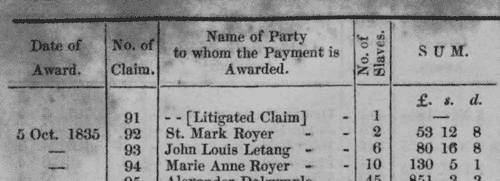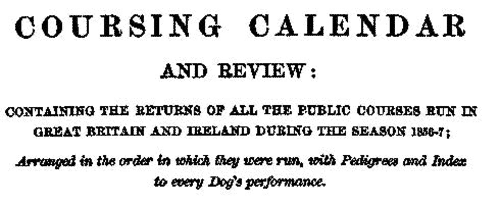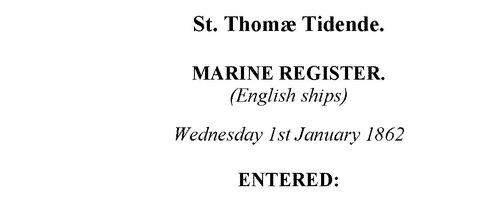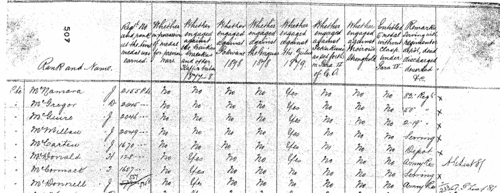Foye Surname Ancestry ResultsOur indexes 1000-1999 include entries for the spelling 'foye'. In the period you have requested, we have the following 29 records (displaying 11 to 20): Single Surname Subscription | | | Buying all 29 results of this search individually would cost £176.00. But you can have free access to all 29 records for a year, to view, to save and print, for £100. Save £76.00. More... |
These sample scans are from the original record. You will get scans of the full pages or articles where the surname you searched for has been found. Your web browser may prevent the sample windows from opening; in this case please change your browser settings to allow pop-up windows from this site. Dominica Slave Owners (1838)
Slavery was abolished throughout the British Empire by act of Parliament in 1833. This list, published in 1838, gives details of compensation paid to owners who had suffered by the emancipation of their slaves after abolition. The table gives the date of the award, the number of the claim, the full name of the party to whom payment was awarded, the number of slaves, and the sum paid. Few masters had owned more than 100 slaves; most of the claimants had only a few. The cost of the loss of a single slave was generally assessed at about £20. There were 1030 claims from Dominica, including some that were abandoned, disallowed, or still unsettled because of litigation.
FOYE. Cost: £8.00.  | Sample scan, click to enlarge

| Deaths, Marriages, News and Promotions
(1839)
Death notices and obituaries, marriage and birth notices, civil and military promotions, clerical preferments and domestic occurrences, as reported in the Gentleman's Magazine. Mostly from England and Wales, but items from Ireland, Scotland and abroad.
FOYE. Cost: £4.00.  | Sample scan, click to enlarge

| Deaths, Marriages, News and Promotions
(1843)
Death notices and obituaries, marriage and birth notices, civil and military promotions, clerical preferments and domestic occurrences, as reported in the Gentleman's Magazine. Mostly from England and Wales, but items from Ireland, Scotland and abroad.
FOYE. Cost: £4.00.  | Sample scan, click to enlarge

| Hare Coursing Competitors at Tunstall and Bainesse (near Catterick) (1856)
Names of competitors from results recorded in the Coursing Calendar for September to December 1856; in which the meetings are listed chronologically, giving precise dates and the names of the presiding officers (stewards, judge, slipper, field officer, secretary). In each heat two greyhounds are raced, the winner from each pair proceeding to the next heat. Each dog is identified by its name and that of its owner. The parents of the winning dog are usually stated. The name of each competition is given with the number of nominations, the stakes and prizes. There are also occasional matches between particular dogs. These abbreviations are used: b. bitch; bd. brindled; be. blue; bk. black; br. l. broken leg; cr. cream; d. dog; dn. dun; dr. (with)drawn; dr. l. drawn lame; f. fawn; gr. grey; p. puppy; r. red; t. ticked; tn. tanned; w. white.
FOYE. Cost: £8.00.  | Sample scan, click to enlarge

| Insolvents
(1856)
Insolvency notices for England and Wales: insolvency often caused people to restart their lives elsewhere, so these are an important source for lost linksFOYE. Cost: £6.00.  | Sample scan, click to enlarge

|  Persons of standing recommending London police recruits
(1843-1857) Persons of standing recommending London police recruits
(1843-1857)
The Metropolitan Police Register of Joiners (MEPO 4/334) lists policemen joining the force 1 January 1843 to 1 April 1857 (warrant numbers 19893 to 35804). The register is alphabetical, in so far as the recruits are listed chronologically grouped under first letter of surname. It gives Date of Appointment, Name, Number of Warrant, Cause of Removal from Force (resigned, dismissed, promoted or died), and Date of Removal. Although the register was closed for new entrants at the end of 1842, the details of removals were always recorded, some being twenty or more years later. Those recruits not formerly in the police, the army, or some government department, were required to provide (normally) at least two letters of recommendation from persons of standing, and details of these are entered on the facing pages. Where a recruit was only recently arrived in the metropolis, the names and addresses of the recommenders can be invaluable for tracing where he came from. Those recruits not formerly in the police, the army, or some government department, were required to provide (normally) at least two letters of recommendation from persons of standing, and details of these are entered on the facing pages: the names in these are indexed here (the police recruits are indexed separately and not included here). Recruits transferred from other forces or rejoining the force did not normally need recommendations - in the latter case, former warrant numbers are given - but some recommendations are from police inspectors, even other constables. Recruits coming from the army sometimes have general military certificates of good conduct, but most often have a letter from their former commanding officer; recruits recommended by government departments (most often the Home Office) similarly have letters from the head of department. But the great majority of the names and addresses in these pages are of respectable citizens having some sort of personal acquaintance with the recruit. Where more than two recommendations were provided, the clerk would only record one or two, with the words 'and others'. Tradesmen are sometimes identified as such by their occupations; there are some gentry. Although the bulk of these names are from London and the home counties, a scattering are from further afield throughout Britain and Ireland. FOYE. Cost: £8.00.  | Sample scan, click to enlarge

| Anglican Clergy in England and Wales
(1858)
The Clergy List for 1858 includes this comprehensive list of Anglican clergymen in England and Wales, whether beneficed or not. The names are arranged alphabetically by surname, and christian name or initials, with degree, and current office.FOYE. Cost: £4.00.  | Sample scan, click to enlarge

| Masters of English Merchantmen at St Thomas (1862)
The custom house at St Thomas, a Danish colony in the West Indies, issued daily lists of ships entered and cleared, which were published as the Marine Register in the twice weekly polyglot newspaper St Thomae Tidende. The reports of entries give precise date of arrival, nationality, type and name of the vessel (sailing ships in italics, steamships in capitals), the captain's surname (in bold), and whence the ship had come, sometimes adding a brief note about the cargo. The lists of ships cleared for departure have similar details, but with the ship's proposed destination. St Thomas was an important harbour not only serving inter-island Caribbean trade, and trading with England and the north and south American colonies, but also as an entrepot or intermediate destination, ships leaving with goods imported from elsewhere. A large proportion of the shipping was English, virtually all the steamers flying the Red Ensign.
FOYE. Cost: £8.00.  | Sample scan, click to enlarge

| Inhabitants of Worcester
(1868)
Gentry, farmers and traders listed in J. E. R. Kelly's Post Office Directory of Worcestershire. (The sample scan is of the section for the little parish of Hadzor)FOYE. Cost: £6.00.  | Sample scan, click to enlarge

|  Men of the 13th Regiment of Foot (1st Somersetshire - Prince Albert's Light Infantry) fighting in South Africa
(1877-1879) Men of the 13th Regiment of Foot (1st Somersetshire - Prince Albert's Light Infantry) fighting in South Africa
(1877-1879)
What is commonly called the Zulu War Medal was awarded to those British soldiers who fought in a series of conflicts in southern Africa from 1877 (the Kaffir War) through to 1879 (the Zulu War). In 1880 the various units submitted returns of the officers, non-commissioned officers and men 'entitled to the Medal for Military Operations in South Africa during 1877-8-9' and these 'medal rolls' are now in the National Archives. The returns are made with the information arranged in twelve columns:
1. Rank and name
2. Regimental number and rank at the time the medal was earned
3. Whether in possession of medal for previous wars
4. Whether engaged against the Gaikas, Galekas and other Kaffir tribes 1877-8
5. Whether engaged against Pokwane 1878
6. Whether engaged against the Griquas 1878
7. Whether engaged against the Zulus 1879
8. Whether engaged against Sekukuni as set forth in Par. 2. G. O.
9. Whether engaged against Moirosi's stronghold
10. Entitled to medal without clasp under Par. 4.
11. Serving with regiment, depot, dead, discharged, deserted, &c.
12. Notes and cross-references to the Adjutant-General's medal lists.
WO 100/46.
FOYE. Cost: £8.00.  | Sample scan, click to enlarge

|
Research your ancestry, family history, genealogy and one-name study by direct access to original records and archives indexed by surname.
|













